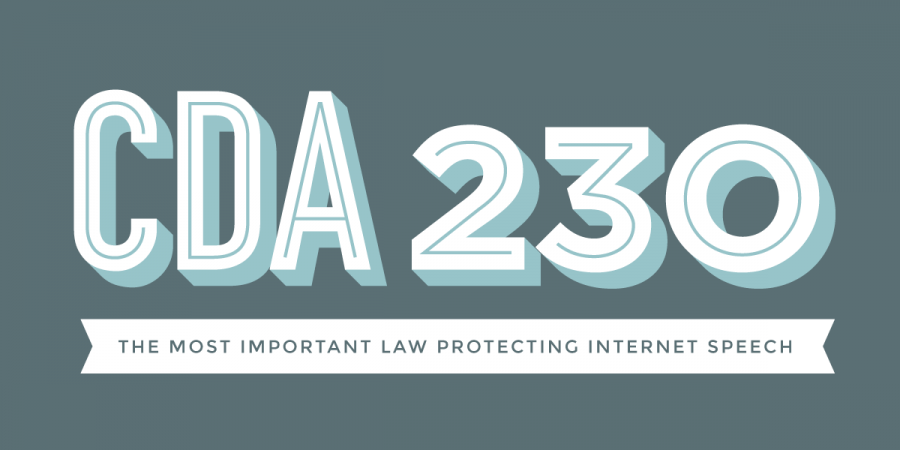Social Media Pushing Rule 230
No provider or user of an interactive computer service shall be treated as the publisher or speaker of any information provided by another information content provider.
Commonly referred to as Rule 230, Section 230 is a legislation written in the Communications Decency Act.
Established in 1996, the rule is a sort of legal shield for anyone who wishes to publish a link or window for users to express their opinions or point of view.
A small-scale example of Section 230 in action would be if an individual creates a social media account focused mainly on posting negative remarks on a company.
If the company or a loyal customer were to take offense to any posts or comments on the account, the publisher of the website would not be liable for any harm aimed towards either of them, but rather the user who initially constructed those comments.
This means that social media developers such as Mark Zuckerberg or Evan Spiegel (who created Facebook and Snapchat respectively) are not held accountable for any harmful comments or posts created on their platforms.
Arguably, websites such as Twitter, Facebook, Instagram, Reddit, and even online auctions such as Craigslist or Amazon wouldn’t exist without the establishment of Rule 230.
And although the First Amendment protects US citizens from having their free speech being taken away from the government, social media developers can and will ban users at will for speech going against their guidelines.
Whether that be bullying and harassment, copyright infringement, or promoting dangerous activities, it is the developers’ choice on what can and can’t be allowed on their platform.
Rule 230 has been modified over the years, with one of the more recent changes being in March 2018, in which Congress voted to change the rule in order crack down on sex trafficking of children. In order to do so, they needed to weaken Section 230, and make websites that exploited sex trafficking be held accountable for their actions.
Although the change was seen as a positive in the grand scheme of things by certain people- for example Rob Portman, the Senator of Ohio- who blamed the internet itself for the exploitation of children- it may be an indication that websites are going to become more liable from here on out.
President Donald Trump has also tried to pass an executive order preventing online censorship in May, stating that, “Section 230 was not intended to allow a handful of companies to grow into titans controlling vital avenues for our national discourse under the guise of promoting open forums for debate, and then to provide those behemoths blanket immunity when they use their power to censor content and silence viewpoints that they dislike.”
Joe Biden has also put in his two cents on the matter in January earlier this year saying, “It should be revoked because it is not merely an internet company. It is propagating falsehoods they know to be false,” calling out Zuckerberg and other social media developers.
Social media is also constantly changing the world that we humans inhibit and interact with everyday.
Zoom for example is the new mandatory school norm for a lot of students this fall due to the COVID outbreak earlier this year.
Although many people think of young and hip content creators posting selfies of themselves at fun events, Webster Dictionary defines social media as “forms of electronic communication (such as websites for social networking and microblogging) through which users create online communities to share information, ideas, personal messages, and other content (such as videos)”.
With more people across the world getting introduced to social media, they’re likely to use it to their advantage as a way for communicating or using it as a news source.
However, in June of 2018, a study was conducted by Pew Research Center where they found that 7 in 10 Americans thought that censorship was present in social media and certain political viewpoints were getting intentionally obstructed.
In the same survey, 64% of Republicans felt that major technological companies favored liberal standpoints over more conservative ones.
The American Press Institute cites that the number one goal for journalists is the truth, and that their first loyalty is to citizens. The main purpose is to inform readers on the main ongoing news in today’s world and to let the readers make up their mind for themselves. It is not the writers’ job, but instead the audience’s. With new media, brings new technology, thus making the relationship between media and politics more complicated as time goes on.

Quality Control Editor Jared Arenas is a junior at Centennial High School, and alongside being in charge of quality control for The Talon, he is also...






